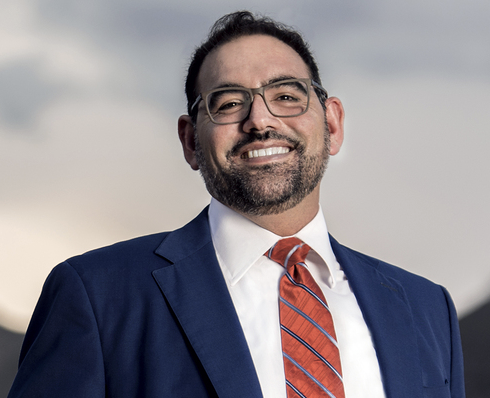
Peter Svarzbein
El Paso Community Engagement Manager
This is an Op-Ed by Peter Svarzbein, the El Paso Community Engagement Manager of ADL’s Southwest Region.
Nearly five years after 23 people were senselessly murdered and 22 more were injured by a domestic terrorist at an El Paso Walmart, we are no closer to understanding the depravity of hate and xenophobia that fueled the attack. As one of the largest binational metropolitan areas in the world, we know that diversity is something that makes communities stronger, not something that should lead to hate and violence.
The Memory of Hate
The attack on August 3rd was not an isolated incident of gun violence but a manifestation of a deeper, more difficult problem: the rise of extremism and hate in our society. Pittsburgh, Poway, Buffalo, El Paso—all targeted because of racism and hate. The shooter drove over 600 miles to specifically target a community he had come to despise through the influence of xenophobic rhetoric and white supremacist ideologies. By labeling this tragedy as a hate crime, we acknowledge the specific motivations behind the violence and the targeted nature of the attack.
In the aftermath, El Paso has shown remarkable resilience and unity. The outpouring of support from across the nation and the globe has been a testament to our strength and solidarity. Yet, it is crucial to remember that healing is a continuous process. The scars left by such a heinous act run deep, affecting not just the immediate victims and their families but the entire community.
Why Call It a Hate Crime?
Calling the Walmart attack a hate crime is not merely a matter of semantics; it is an essential recognition of the underlying motives that drove the perpetrator. Hate crimes are designed to instill fear and division among specific groups of people. By acknowledging this, we confront the broader issues of racism, xenophobia, and extremism that plague our society. It allows us to direct our efforts towards addressing these root causes and working towards a more inclusive and just society.
Hate crimes have a ripple effect, creating an environment of fear and mistrust. For our Latino community in El Paso, the attack was a stark reminder of the prejudice and bigotry that still exists in our world. We must call out these acts of hate for what they are, ensuring that the memory of the victims is honored by our commitment to fighting the ideologies that led to their deaths. As a first-generation Latino American, visiting over a dozen funerals in my capacity as a city representative in the weeks and months after the attack left a deep impact on me and underscored the need to speak out when we see hate and prejudice in our society. My personal history as the grandson of a Holocaust survivor, with very few cousins and extended family, unfortunately shows that bad things happen when good people stay silent.
The Path Forward
Our community’s response to the August 3rd attack has been one of solidarity and resilience, but we must continue to strive for more. We need to ensure that our educational systems teach the values of diversity and inclusion, and that our public policies reflect a commitment to justice and equality. As we remember the victims of the Walmart attack, let us also honor their memory by fostering a community where all individuals feel safe and valued.
It is incumbent upon all of us to challenge hate wherever we see it. This means standing up against discriminatory rhetoric, supporting policies that promote inclusion, and working together to build bridges of understanding. The fight against hate is not just for those directly affected by it, but for all of us who believe in the principles of justice and humanity.
Healing from such a traumatic event takes time, but it also requires action. By acknowledging the pain and suffering caused by the August 3rd attack, we can work towards a future where such acts of racism and violence are no longer a part of our reality. El Paso’s strength lies in its diversity and unity; it is up to us to protect and nurture these qualities for future generations.

